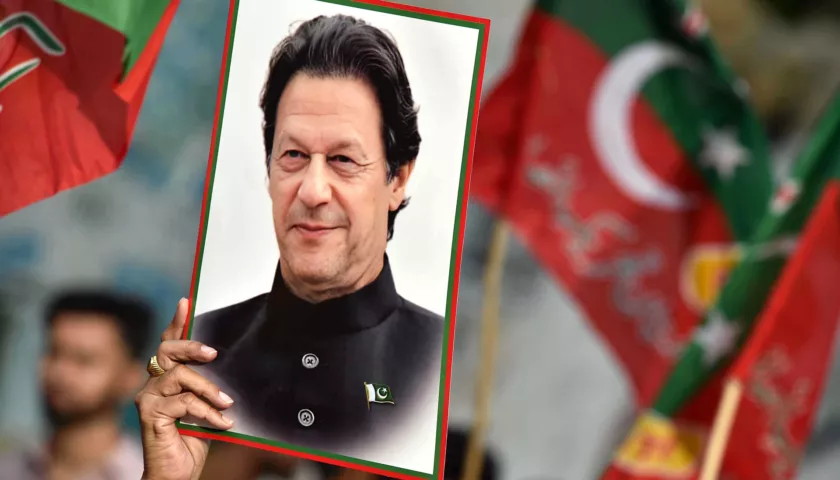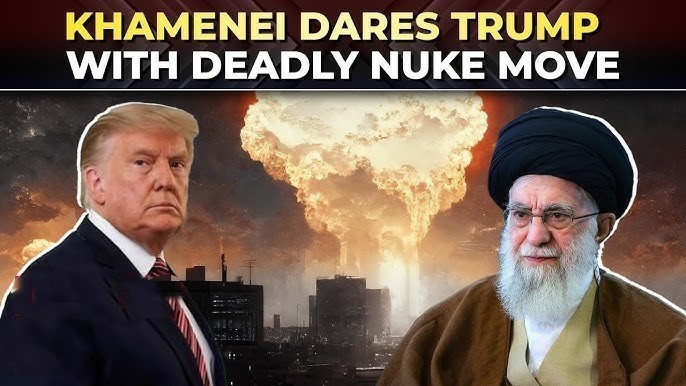Iran-Israel Conflict 2025: Global Reactions, Nuclear Fears, and What’s at Stake
By: Javid Amin | 15 June 2025
A World on the Brink
The world is holding its breath. The Middle East has once again become the flashpoint of a potentially catastrophic global crisis, as tensions between Iran and Israel have escalated into a full-scale military confrontation. With Israel’s targeted strikes on Iran’s nuclear and military sites triggering Iran’s massive retaliatory campaign, dubbed “Operation True Promise 3”, the region now teeters on the edge of an unprecedented geopolitical breakdown.
This is no longer a battle of shadows or proxies—it is a direct clash between two regional heavyweights, drawing in allies, disrupting diplomacy, and igniting fears of a nuclear confrontation.
The Spark: How the Fire Began
The seeds of this latest conflict were sown over months of mounting hostility, covert operations, and tit-for-tat strikes. But the real escalation began when Israel launched a surprise wave of airstrikes targeting what it called Iran’s advancing nuclear weapons infrastructure, allegedly under construction in underground bunkers near Natanz, Fordow, and Arak.
The strikes also eliminated key Iranian military leaders, including:
-
Hossein Salami, Commander-in-Chief of the Islamic Revolutionary Guard Corps (IRGC)
-
General Mohammad Bagheri, Iran’s Armed Forces Chief of Staff
-
Two prominent nuclear scientists involved in uranium enrichment programs
Israel codenamed its operation “Rising Lion”, justifying it as pre-emptive self-defense to halt what it described as “imminent weaponization by Iran”.
Iran’s Retaliation: Operation True Promise 3 Unleashed
In a powerful and symbolic counterstrike, Iran activated “Operation True Promise 3”, the latest and most intense version of its retaliatory doctrine.
Tactical Highlights:
-
Hundreds of ballistic missiles, cruise missiles, and drones were fired over a 12-hour assault window.
-
Primary targets included:
-
Military bases in the Negev Desert
-
Naval facilities in Haifa and Ashdod
-
Airfields near Tel Aviv and Jerusalem
-
-
Several missiles penetrated Israel’s Iron Dome and David’s Sling defenses, resulting in 40 injuries and at least one civilian death in Ramat Gan.
The attack, launched on the eve of Eid al-Ghadir, was infused with religious and nationalist symbolism, as IRGC commanders invoked “Ya Ali ibn Abi Talib”, linking the military response to ideological roots.
Iran claimed the strikes were measured, stating it could have caused “total devastation” but chose restraint—a signal to international observers and regional actors alike.
The Global Response: Condemnations, Warnings, and Calls for Restraint
UN and Vatican Voice Concern
-
UN Secretary-General António Guterres condemned the attacks on nuclear facilities and urged maximum restraint, emphasizing that “nuclear diplomacy must not collapse under the weight of missiles.”
-
Pope Leo XIV, in a rare political statement, appealed to the conscience of both nations:
“The world must resist the pull of pride and destruction. Let reason speak louder than rockets.”
U.S. President Donald Trump: Hawkish Tone, Strategic Clarity
President Trump confirmed prior knowledge of Israel’s strikes, stating:
“Iran cannot have a nuclear bomb—not now, not ever.”
While reaffirming U.S. support for Israel’s “right to protect itself,” Trump warned Iran against further retaliation, threatening a “more brutal” response if the conflict spreads.
European Diplomacy Calls for De-escalation
-
French President Emmanuel Macron recognized Israel’s right to defend itself but stressed “regional stability must not become collateral damage.”
-
UK Prime Minister Keir Starmer and Italian Foreign Minister Antonio Tajani issued a joint statement emphasizing:
“Diplomacy, not domination, is the only sustainable path forward.”
China and Russia Condemn Israel’s Actions
-
Beijing warned of “grave consequences” and criticized the Israeli strikes as a “violation of international norms”.
-
Moscow urged for an immediate ceasefire and offered to mediate through the Astana diplomatic channel.
The growing divide between Western and Eastern powers over the legitimacy of the strikes has complicated international unity, potentially emboldening Iran diplomatically.
What’s at Stake: Beyond Borders and Ballistics
Nuclear Escalation
Iran claims Israel struck sites central to its civilian nuclear program, including:
-
Bushehr power plant
-
Natanz research facility
Israel contends these sites were being militarized in secret.
The stakes couldn’t be higher:
-
Iran has suspended cooperation with the IAEA.
-
Talks under the Joint Comprehensive Plan of Action (JCPOA) are officially stalled.
-
There are unconfirmed reports of radiation leaks near Arak, raising environmental concerns.
Regional Destabilization
The risk of a broader Middle East war looms large. Already:
-
Hezbollah has fired rockets into northern Israel in solidarity with Iran.
-
Hamas has called for an intifada in the West Bank.
-
Shia militias in Iraq and Syria have declared mobilization.
If full-scale war erupts, nations like Saudi Arabia, Jordan, Egypt, and Turkey could be forced into unwanted strategic recalculations.
Humanitarian Fallout: Civilians Pay the Price
-
Over 200,000 people in both Iran and Israel have evacuated or gone underground.
-
Airports in Tel Aviv and Tehran are shut down.
-
Hospitals report overwhelmed emergency wards, especially in Ashkelon and Isfahan.
-
Humanitarian corridors proposed by the UN have not yet materialized.
The psychological trauma of repeated missile alerts and shelter drills is compounding civilian fear, particularly among children and the elderly.
Strategic Analysis: What Comes Next?
Diplomacy or Disaster?
Multiple diplomatic avenues are being quietly explored:
-
Oman and Qatar, known for backchannel diplomacy, are mediating messages between Tehran and Washington.
-
India and Brazil, both major global South players, have offered to convene an emergency “Peace Dialogue 2025”.
-
Israel’s internal political pressure is mounting, with some opposition leaders urging Prime Minister Benjamin Netanyahu to accept a ceasefire for the sake of national unity.
But if another round of escalations occurs—particularly involving Hezbollah or U.S. military assets in the region—full-scale war may be unavoidable.
Economic Shockwaves
Global markets have already reacted:
-
Oil prices have surged to $115 per barrel.
-
Gold and cryptocurrencies are experiencing volatile spikes.
-
Global supply chains, especially energy routes through the Strait of Hormuz, face disruption.
This conflict is not just military—it’s economic, environmental, and humanitarian.
Voices from the Ground
Israeli Citizens Speak
Shira Cohen, a teacher in Jerusalem:
“We’re used to sirens, but this time, it feels like something deeper is breaking… a sense of safety, of control.”
Yonatan Dagan, a cybersecurity expert in Tel Aviv:
“We support defense, but I fear our leaders have taken us too far. We need peace, not pride.”
Iranian Voices Echo Pain
Fatemeh Rahimi, a student in Isfahan:
“They say it’s retaliation, but what did I do to deserve this fear? We need bread and books, not bombs.”
Ali Mohammad, a taxi driver in Tehran:
“Every time the world ignores diplomacy, we suffer. We are not soldiers—we are people.”
Conclusion: A Moment That Demands Moral Courage
This is more than a military conflict—it is a moral crossroad.
Israel has legitimate security concerns. Iran has long harbored anti-Israel rhetoric and empowered militant proxies. But in this moment, both sides—and the world—must choose between escalation and empathy, between national pride and planetary peril.
The calls for peace are growing louder. The threats of war are growing darker.
The question is: Will wisdom prevail before the world plunges into irreversible devastation?




